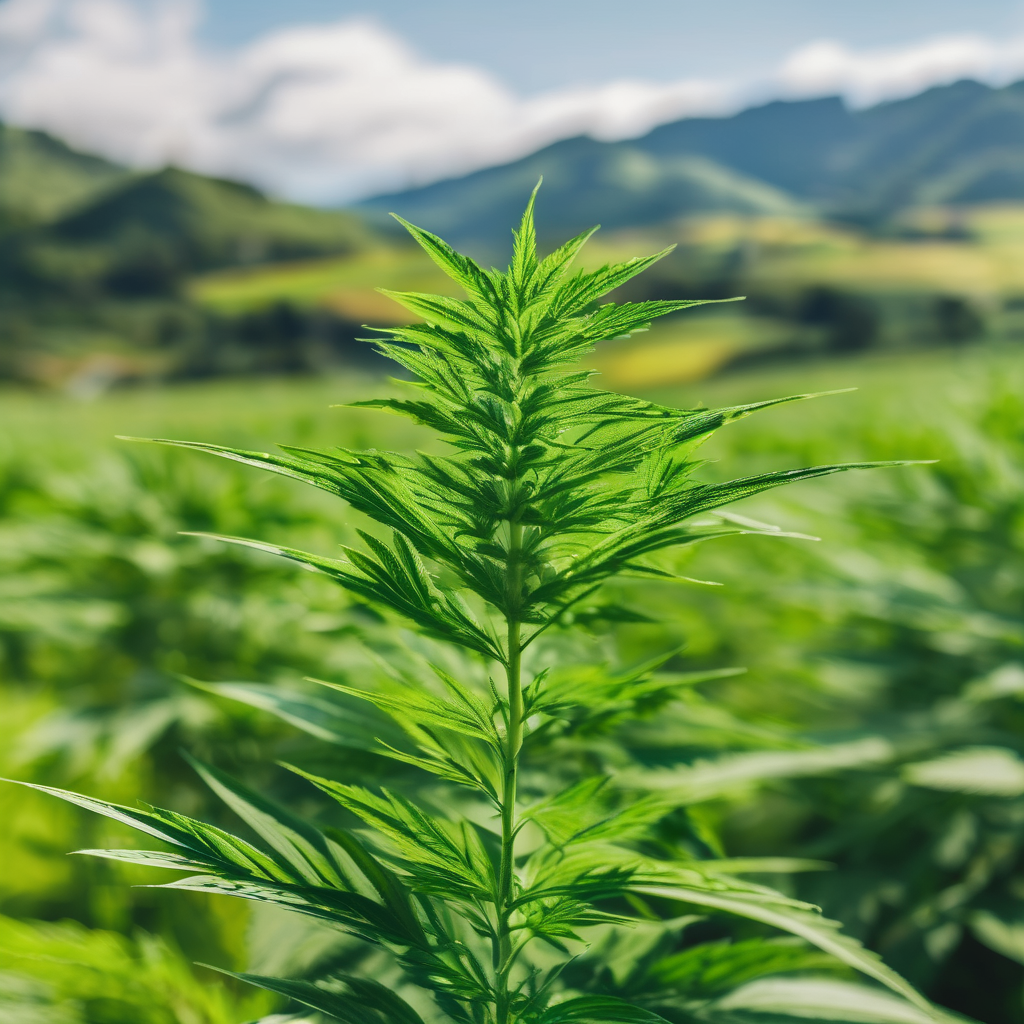In a pivotal moment for the hemp industry, officials from top textile companies gathered in Wichita Falls last year to inaugurate what is touted as the largest hemp processing facility in the Western Hemisphere. This development follows the 2018 congressional decision to lift a near-century ban on hemp production, aiming to elevate the material from a niche market to a mainstream clothing staple. However, the burgeoning industry faces significant challenges, particularly with the rapid proliferation of hemp-derived THC products.
Scott Evans, the chief operating officer of Panda Biotech, expressed concerns about the negative perceptions arising from misuse within the market. “Medical hemp has its role, but we need to regulate it because people have found loopholes and exploited them,” he noted, highlighting a growing call for regulation within the hemp sector.
The recent congressional push to restrict hemp-derived THC products has emerged amidst an extensive campaign to gain control over the booming CBD and THC edibles market. This surge in popularity has not only drawn scrutiny from alcohol and marijuana industries but has also raised alarms among stakeholders within the hemp community itself.
When Congress legalized hemp production in 2018, it was anticipated that farmers would flourish by cultivating a new cash crop for traditional uses. However, unintended scientific advancements have led to the extraction of psychoactive compounds from hemp, creating a marketplace that was not envisioned. Heather Fazio, director of the Texas Cannabis Policy Center, acknowledged the unforeseen consequences of this oversight.
In 2022, U.S. farmers reported harvesting over $445 million worth of hemp, with nearly 90% directed toward edible and cannabinoid products. The leading producers included California, Kentucky, and Oregon. The consumer demand for hemp edibles has drawn attention from the alcohol industry, particularly as traditional alcohol consumption has reportedly declined, prompting concern over competitors encroaching on their market share.
Lobbyists from the alcohol sector have voiced their apprehensions to Congress, arguing that the 2018 legalization was intended to revive industrial hemp, not to create a new sector of highly intoxicating products. Concurrently, large cannabis firms have also expressed discontent, stating that hemp-derived edibles negatively impact their sales.
Senate Minority Leader Mitch McConnell, who was instrumental in passing the 2018 Farm Bill, has recently called for a ban on THC products derived from hemp, stressing the need to regulate unmonitored THC consumption. Support for this initiative was echoed by law enforcement and anti-drug groups who expressed concerns about the marketing of these edibles to minors.
Inside the hemp industry, there is a nuanced debate about the implications of such regulations. Executives like Geoff Whaling of the National Hemp Association believe the industry must self-regulate to prevent a tarnished reputation. “If we don’t address this ourselves, there’s going to be problems,” Whaling stated, underscoring the urgency for action.
Despite the current ban’s implementation not taking effect until late next year, discussions are underway to replace the ban with a regulatory framework akin to existing guidelines for alcohol and tobacco industries. Advocates from within the industry are pushing for regulations similar to Texas Gov. Greg Abbott’s recent executive actions, which restrict edibles sales to adults and enforce stricter packaging standards.
Opposition to the federal ban is also gaining traction, with figures like Senator Ted Cruz arguing that a universal federal standard could lead to unintended negative outcomes for consumers. U.S. Representative Dan Crenshaw has joined bipartisan efforts to voice concerns that the ban risks undermining a flourishing industry valued at over $28 billion annually.
As the hemp industry navigates these challenges, there remains a collective hope for a balanced approach that preserves the potential of hemp while addressing consumer safety and market integrity. The road ahead may be uncertain, but the evolving landscape of hemp production holds promise for many innovators and consumers alike.
